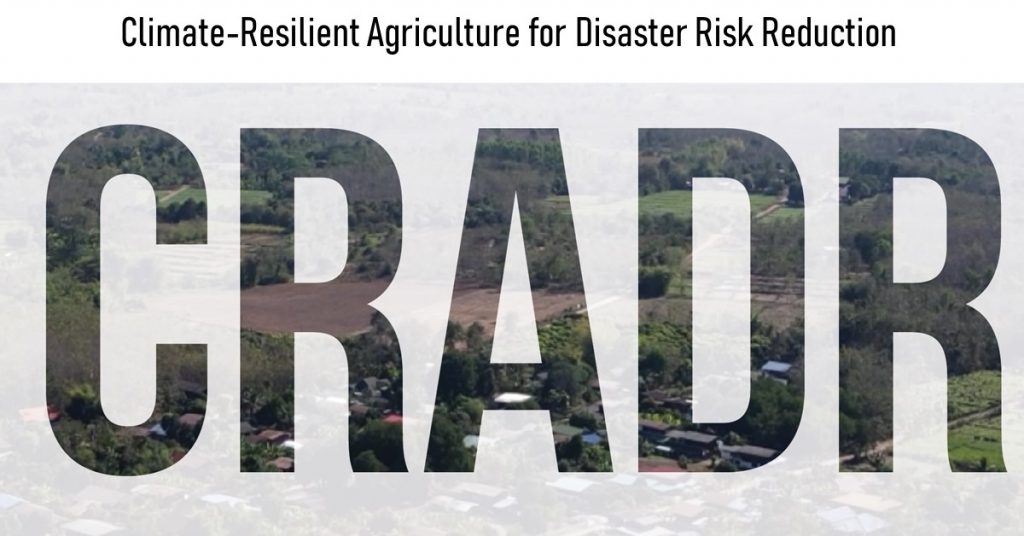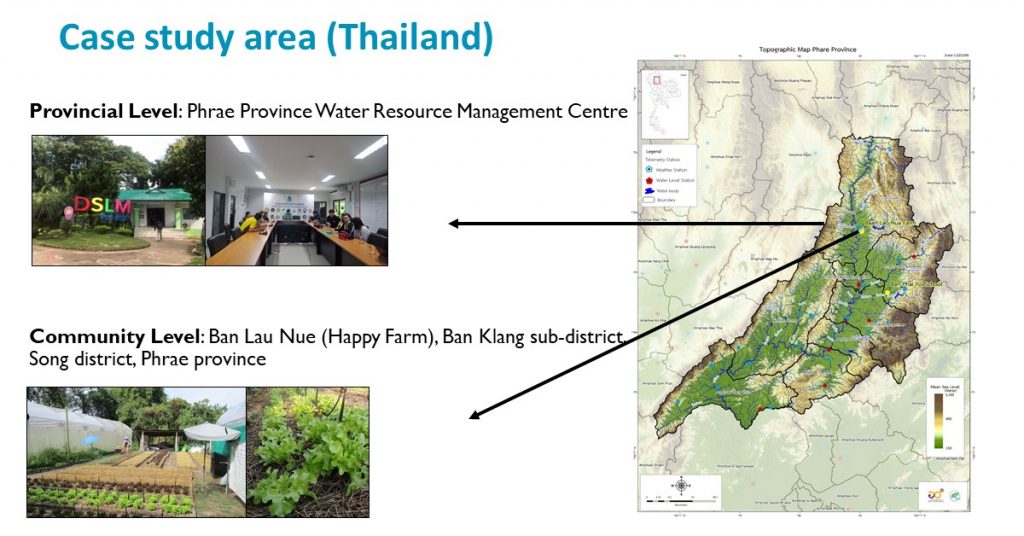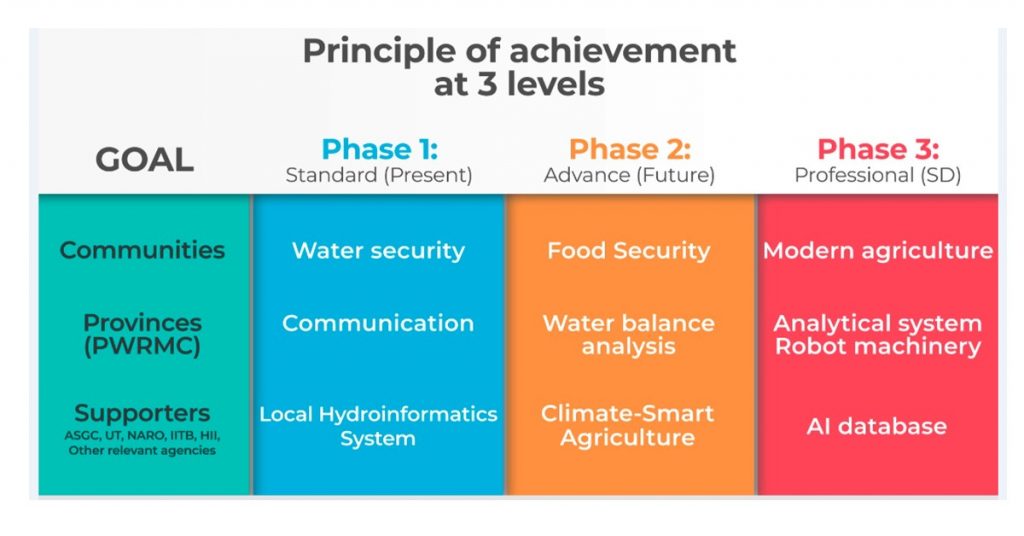
AHC members joined the Climate-Resilient Agriculture for Disaster Risk Reduction (CRADR) project hosted by Hydro-Informatics Institute (HII), Thailand.

Climate-Resilient Agriculture for Disaster Risk Reduction
The agricultural sector is often the first to be affected by the changing climate. The Climate-Resilient Agriculture for Disaster Risk Reduction (CRADR) project aims to bridge the gap between international excellence and local expertise to overcome the climate-related agricultural disasters at all levels, from regional, national, to local. The project would like to identify the source of necessary information, the meteorological parameters directly impact on agriculture, and the affordable and effective tool/equipment for local people to prepare for this uncertainty. If possible, the cutting-edge technology based on active research and education network within Asia that suits with the local context should be identified.
The CRADR project was an initiative of Hydro-Informatics Institute (HII), Thailand, funded by the European Commission and Trains-Eurasia Information Network* Corporation Center (TEIN*CC) with collaboration from ‘International Partners’ e.g. Japan, Taiwan and India, and participated by all the AHC member countries to jointly study and adapt the knowledge to their own country. The project has two levels of testbeds in Thailand, which are 1) the Provincial Water Resource Management Center at Phrae province, and 2) Ban Pak Yim group or “Happy Farm” in Phrae province.

Case Study Area in Phrae Province, Thailand
Various sensing technologies are globally available, but each have different pros and cons and must be carefully select the appropriate one to each agro-climatic condition. The prerequisite caution is its scalability and customizability to small-scale farming with an affordable price. Although ICT is inevitably instrumental for strengthening people’s capacity, ICT literacy among local users cannot be disregard. Downscaling of climate projection information or simulation modelling are also the crucial tools to define local climate-risk for proper preparation. In this project, we find “Temperature” is one of the key variables impacted on the agricultural production in Thailand. More work will be exercised in the future to identify the customizable and affordable tools to implement in the local testbeds. This outcome will also be used as a prototype on small reservoirs management for local agricultural sectors in Thailand starting with Phrae province. Then, it can scale up through existing HII’s network to the national level, with a high potential of expanding to regional level.

Principle of Achievement at 3 Levels
Due to the outspread of Coronavirus pandemic (COVID-19) and infection control policy which was applied internationally and nationally, the design of the overall project was unavoidably changed from physical to virtual format, and the duration of the project was also reduced by half to 6 months. The communication method was also changed to tele-communication, even in Thailand, to enhance a robust understanding of international and domestic participants. A series of training and workshops were organized to transfer the knowledge to all the participants, and the outcome of the project was summarized into the below visualization VDO.
